Search
Search Results
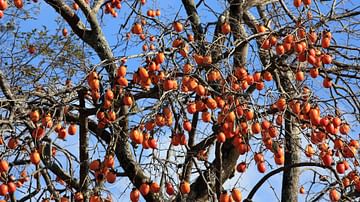
Image
Japanese Persimmon
Japanese persimmon.
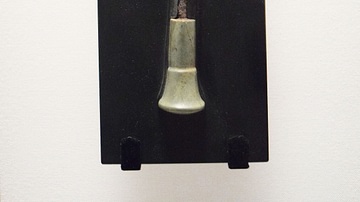
Image
Ancient Japanese Ceremonial Staff
This ceremonial object in the shape of a staff is made of Jasper. It is Japanese and it dates to the 4th century CE, during the Kofun period. (Tokyo National Museum)
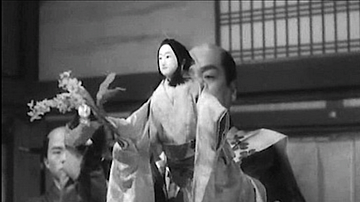
Image
Japanese Puppet & Handler
A scene from the 1952 film The Life of Oharu showing a female puppet and handler as used in Japanese puppet theatre.
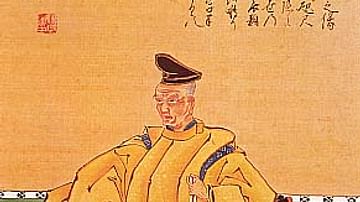
Definition
Chikamatsu Monzaemon
Chikamatsu Monzaemon (1653-1725) was a Japanese playwright who wrote for both the puppet theatre and kabuki. He is regarded as Japan’s greatest dramatist. Apart from their aesthetic appeal, his plays are of value because they provide an insight...
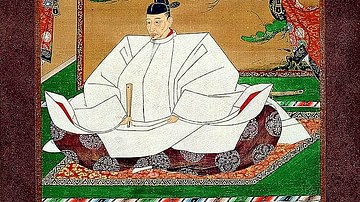
Definition
Toyotomi Hideyoshi
Toyotomi Hideyoshi (1537-1598 CE) was a Japanese military leader who, along with his predecessor Oda Nobunaga (1534-1582 CE) and his successor Tokugawa Ieyasu (1543-1616 CE), is credited with unifying Japan in the 16th century CE. Hideyoshi...

Definition
Tale of Genji
The 'Tale of the Genji' or Genji Monogatari, written in the 11th century CE by Murasaki Shikibu, a court lady, is Japan's oldest novel and possibly the first novel in world literature. The classic of Japanese literature, the work describes...
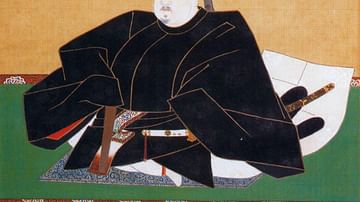
Definition
Tokugawa Iemitsu
Tokugawa Iemitsu (1604-1651) governed Japan as the third shogun of the Edo period. He implemented a number of important policies that not only consolidated his family's hold on power but also greatly impacted Japanese society for several...

Video
Japanese Mythology: Izanagi and Izanami
The creation story of Japan illustrated with Japanese Art. This video describes the birth of the gods Izanagi, Izamani, Amaterasu, Tsukuyomi, and Takehaya Susanoo, and why the emperor is believed to be divine.
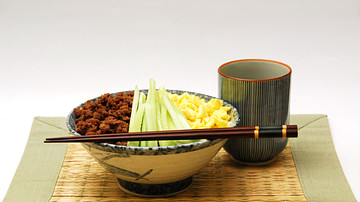
Article
Food & Agriculture in Ancient Japan
The diet of ancient Japan was heavily influenced by its geography as an archipelago, foodstuffs and eating habits imported from mainland Asia, religious beliefs, and an appreciation for the aesthetic appearance of dishes, not just the taste...
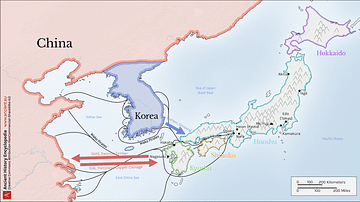
Image
Map of Medieval Japanese Trade & Wako Pirates
Map depicting Medieval Japan and its trade relations with its neighbours, China and Korea. The map shows the major trade goods exchanged between Japan, China, and Korea. Black lines show the approximate routes taken by the Wako Pirates. Each...